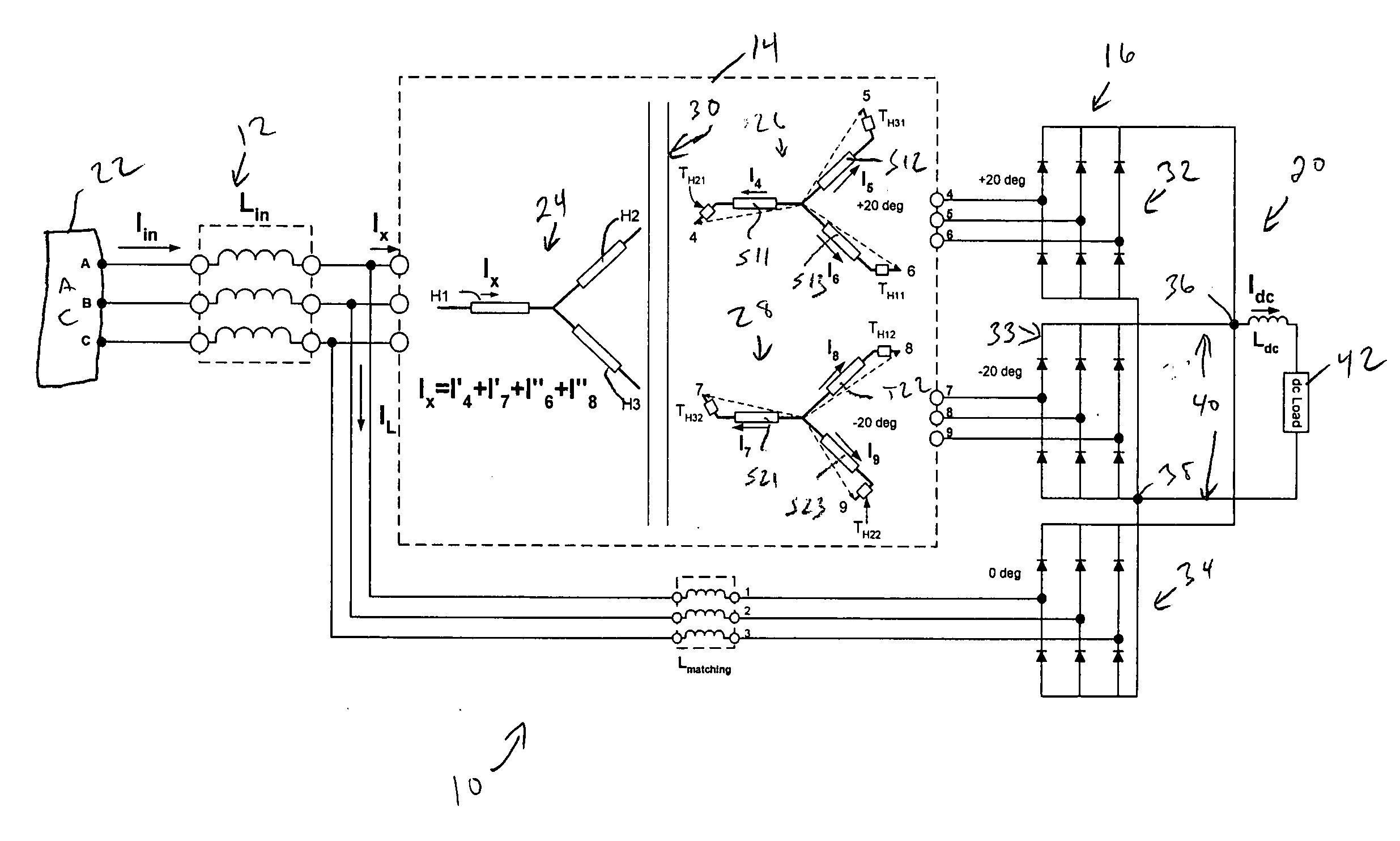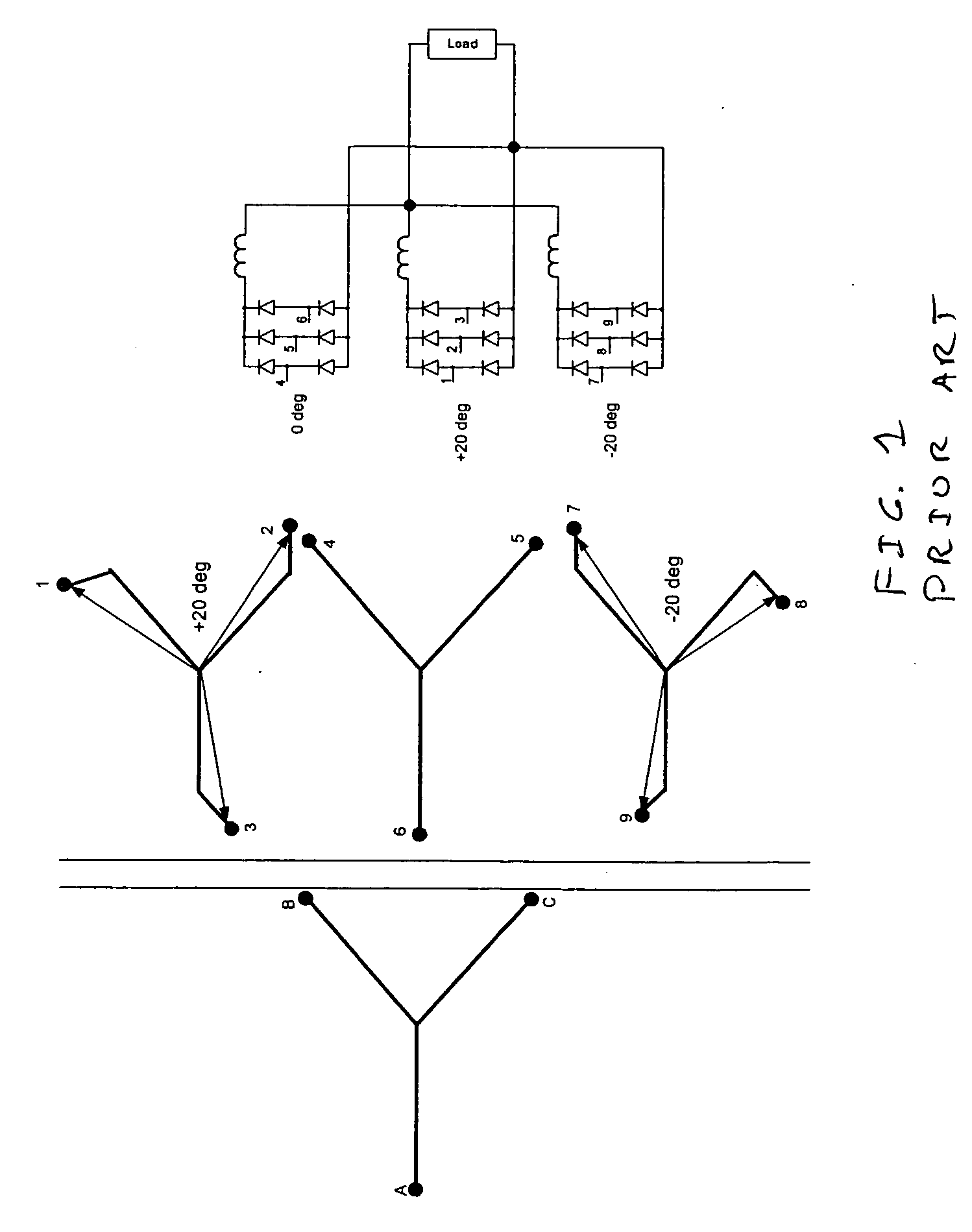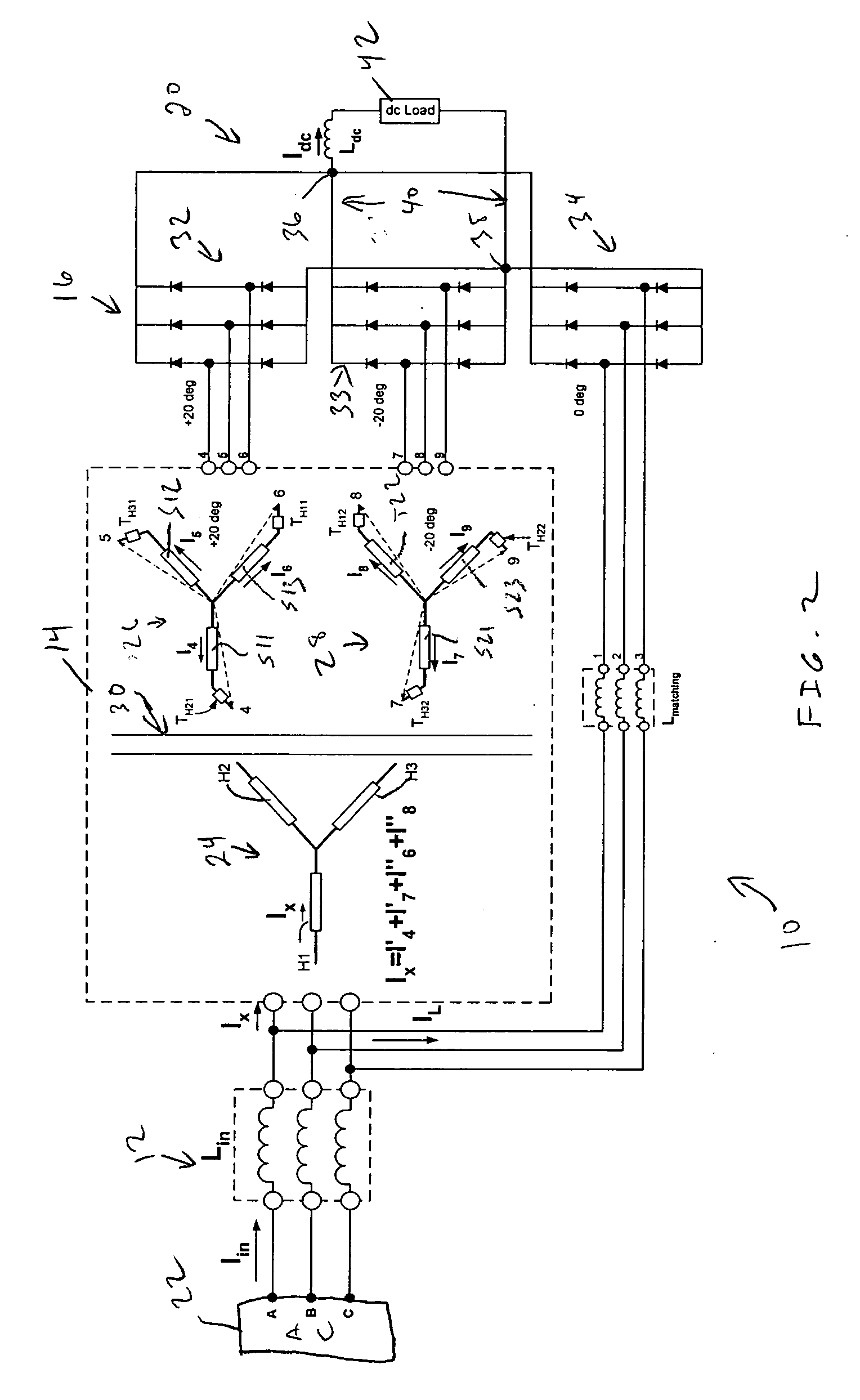Eighteen pulse rectification scheme for use with variable frequency drives
a variable frequency drive and pulse rectifier technology, applied in the field of eighteen pulse rectifiers, can solve problems such as voltage distortion, current distortion becomes an important issue, current harmonic distortion,
- Summary
- Abstract
- Description
- Claims
- Application Information
AI Technical Summary
Benefits of technology
Problems solved by technology
Method used
Image
Examples
Embodiment Construction
[0035]In accordance with the invention, an isolation transformer uses two sets of secondary windings, reducing size and cost. An eighteen-pulse rectifier uses one six-pulse rectifier circuit directly connected to the AC source via some balancing inductance to match the inductance in front of the other two sets of six-pulse rectifier circuits to achieve eighteen-pulse operation.
[0036]The resulting scheme has two six-pulse rectifiers powered via a phase-shifting isolation transformer, while the third six-pulse rectifier is fed directly from the AC source via a matching-impedance. Such an eighteen-pulse arrangement is shown in FIG. 2. The phase-shifting transformer feeding two of the three six-pulse rectifiers is sized to handle ⅔rd the rated power. Similarly, the matching inductor is sized to carry only ⅓rd the rated current. This arrangement results in the overall size of the transformer and matching inductor combination to be smaller and less expensive than the four winding arrangem...
PUM
 Login to View More
Login to View More Abstract
Description
Claims
Application Information
 Login to View More
Login to View More - R&D
- Intellectual Property
- Life Sciences
- Materials
- Tech Scout
- Unparalleled Data Quality
- Higher Quality Content
- 60% Fewer Hallucinations
Browse by: Latest US Patents, China's latest patents, Technical Efficacy Thesaurus, Application Domain, Technology Topic, Popular Technical Reports.
© 2025 PatSnap. All rights reserved.Legal|Privacy policy|Modern Slavery Act Transparency Statement|Sitemap|About US| Contact US: help@patsnap.com



